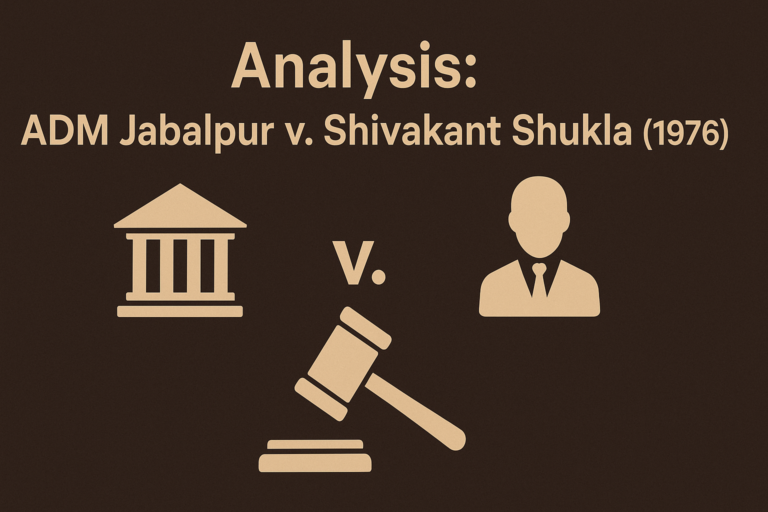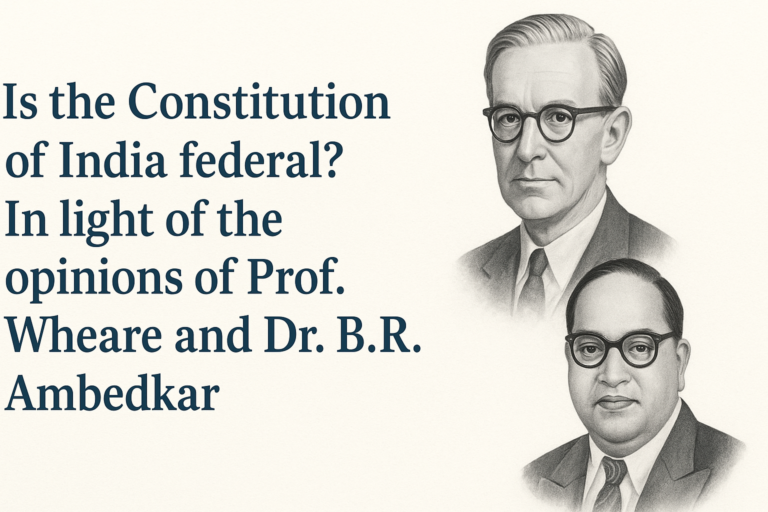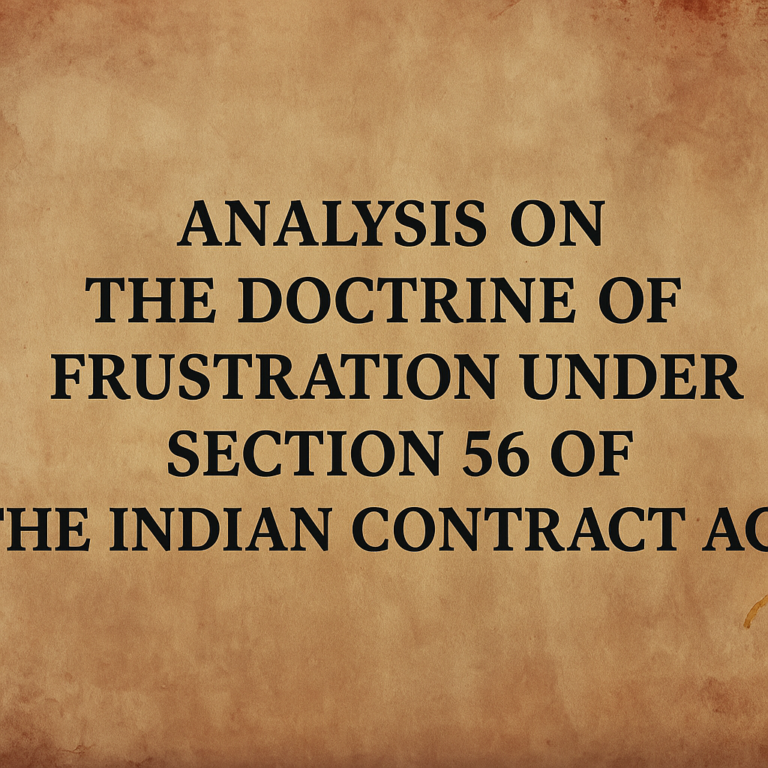
Jayalakshmi K., Author
Jayalakshmi K. has completed her B.Sc. Computer science and graduated with an LLB from Tamil Nadu Dr. Ambedkar Law University in Chennai, Read More.

Abstract
Legal aid is a crucial mechanism that ensures access to justice for individuals who lack financial resources to afford legal representation. It embodies the principle of equality before the law. Despite its significance, legal aid faces several challenges, such as lack of awareness, inadequate funding, shortage of lawyers willing to provide free services, procedural delays, bureaucratic hurdles, and insufficient infrastructure. These obstacles hinder its effective implementation and limit access to justice for those who need it the most. Strengthening legal aid systems is essential for promoting justice, protecting human rights, and ensuring that legal representation is not a privilege of the wealthy but a right for all.
Introduction
Legal aid is an essential component of a fair and just legal system, ensuring that individuals, especially those from marginalized communities, have access to legal representation and justice. It is a fundamental right that upholds the principle of equality before the law, as enshrined in various international human rights instruments and national constitutions. However, despite its significance, legal aid faces several challenges that hinder its effective implementation.
Concept of Legal Aid
Legal aid refers to the provision of free or subsidized legal assistance to individuals who cannot afford the costs of legal representation. The concept is rooted in the idea that justice should not be a privilege limited to those with financial means. Legal aid services include legal advice, representation in courts, and assistance in legal documentation.
History of Free Legal Aid in India[1]
- The concept of free legal aid in India has evolved over the years, with significant milestones shaping its development:
- 1958: The Law Commission of India, in its report on Reform of Judicial Administration, emphasized that providing legal aid to indigent litigants is a fundamental necessity rather than a mere procedural formality.
- 1960: The Government introduced guidelines for legal aid schemes, laying the groundwork for institutionalized legal assistance.
- 1976: The Constitution (Forty-Second Amendment) Act, 1976, incorporated Article 39-A, mandating the state to ensure equal justice and free legal aid for economically disadvantaged individuals.
- 1980: A Committee for Implementing Legal Aid Schemes (CILAS) was formed under the leadership of Justice P.N. Bhagwati to supervise and coordinate legal aid initiatives.
- 1987: The legal Services Authorities Act was enacted to establish a structured and standardized framework for legal aid programs across India.
- 1995: On december 5, 1995, the National Legal Services Authority (NALSA) was constituted as a statutory body to formulate policies, set guidelines, and implement effective legal aid schemes in accordance with the law.
In February 1998, the National Legal Services Authority office began functioning in full capacity for the first time.
A comprehensive nationwide network has been established under the Act to provide legal aid and assistance. The National Legal Services Authority (NALSA) serves as the apex body responsible for formulating policies and principles to ensure the availability of legal services as per the Act. Additionally, NALSA designs cost-effective and efficient legal aid schemes while allocating funds and grants to State Legal Services Authorities and NGOs for implementing these initiatives.
Each state has a State Legal Services Authority (SLSA) that implements NALSA’s policies and directives, provides legal services to the public, and organizes Lok Adalats. The Chief Justice of the State High Court serves as the Patron-in-Chief of the SLSA, with a serving or retired High Court Judge appointed as the Executive Chairman.
At the district level, a District Legal Services Authority (DLSA) operates to execute legal aid programs and schemes within its jurisdiction. The District Judge serves as the ex-officio Chairman of the DLSA.
Furthermore, Taluk Legal Services Committees are formed at the taluk or mandal level, or for a group of taluks/mandals, to oversee legal aid activities and organize Lok Adalats. These committees are led by a senior Civil Judge within the respective jurisdiction, who acts as the ex-officio Chairman.
The right to legal aid is recognized globally. Article 39A of the Indian Constitution, for example, directs the state to provide free legal aid to ensure that justice is not denied due to economic or other disabilities. Similarly, Article 14 and Article 22(1) reinforce the principle of equality before the law, making legal aid an integral part of the justice system.
Importance of Legal Aid
- Ensuring Access to Justice[2] – Legal aid bridges the gap between the rich and the poor, ensuring that all individuals have an equal opportunity to seek justice.
- Protection of Human Rights– Many vulnerable groups, such as women, children, and the underprivileged, rely on legal aid to protect their fundamental rights.
- Reducing Legal Backlogs– By assisting people in resolving disputes through legal channels, legal aid helps reduce the burden on courts.
- Promoting Public Confidence in the Judiciary– A fair legal system that provides aid to the needy enhances trust in the rule of law.
Eligibility for Free Legal Aid
The following categories of individuals are entitled to free legal services under the Legal Services Authorities Act, 1987:
- Women and Children
- Scheduled Castes (SC) and Scheduled Tribes (ST)
- Industrial Workmen
- Victims of Disasters
- Persons with Disabilities
- Persons in Custody
- Economically Weaker Sections – Persons whose annual income:
- Does not exceed ₹1,00,000 for general legal aid.
- Does not exceed ₹5,00,000 for cases handled by the Supreme Court Legal Services Committee.
8. Victims of Human Trafficking and Beggary
Challenges in Providing Legal Aid
Despite its importance, legal aid faces several obstacles that affect its efficiency[3].
- Lack of Awareness
Many people, particularly in rural areas, are unaware of their right to free legal aid. A lack of legal literacy prevents them from seeking the assistance they need.
- Inadequate Funding
Legal aid programs often suffer from insufficient funding, limiting the resources available to provide quality legal services. The government’s budgetary constraints hinder the recruitment of competent lawyers and the expansion of legal aid services.
- Shortage of Lawyers Willing to Provide Legal Aid
Many experienced lawyers prefer private practice over legal aid work due to low remuneration. This results in a shortage of skilled advocates available for free legal assistance.
- Procedural Delays
Delays in the judicial process make it difficult for legal aid beneficiaries to receive timely justice. This discourages individuals from seeking legal help.
- Bureaucratic Hurdles
The process of availing legal aid is often complex and bureaucratic, discouraging many eligible individuals from applying for assistance.
- Lack of Infrastructure
Legal aid services require proper infrastructure, such as legal aid clinics and helplines. In many regions, these facilities are either underdeveloped or nonexistent.
Solutions to Improve Legal Aid Services
- Legal Awareness Campaigns – Governments and NGOs should conduct awareness programs to educate people about their rights and the availability of legal aid.
- Increased Funding – Allocating more financial resources to legal aid services can improve accessibility and efficiency.
- Encouraging Pro Bono Services – Lawyers should be incentivized to provide legal aid voluntarily, and law schools can integrate pro bono work into their curriculum.
- Simplification of Procedures – The process of availing legal aid should be made simple and accessible to all.
- Use of Technology – Online legal aid portals and helplines can help reach a larger population and provide quick assistance.
- Expanding Legal Aid Clinics – Establishing more legal aid clinics in rural and urban areas can improve access to justice.
Case Law
H. Hoskot v. State of Maharashtra[4]
While rejecting the special leave petition, the court examined two key issues arising from the case: the practice of imposing lenient sentences in economic offences and the right to appeal. Regarding the latter, the court emphasized that access to legal aid is a Constitutional right. It ruled that free legal representation at both the trial and appellate stages is essential when matters of life or personal liberty are at stake. Consequently, if a prisoner is unable to secure legal assistance due to financial constraints or being held incommunicado, the court must appoint competent legal counsel, considering the severity of the case and the necessity of justice. However, this appointment is subject to the prisoner’s acceptance. The cost of these legal services must be borne by the State.
Mohd. Hussain v. The State (Govt. of NCT) Delhi[5]
The court observed that the appointed legal aid counsel was absent for a significant portion of the trial and failed to cross-examine multiple prosecution witnesses. It also noted that the Sessions Judge did not inquire whether the accused could engage a lawyer or wished to have one appointed. Although another lawyer was assigned, this occurred only at the conclusion of the trial. The court found that the legal representation provided was so inadequate that it amounted to a denial of meaningful and effective legal assistance, thereby violating the accused’s right to due process and a fair trial. Given the seriousness of the offence, the matter was referred to a three-judge bench to decide whether the trial should be reconsidered from the beginning. The court ultimately ruled in favor of a de novo trial.
State of maharashtra v. Manubhai pragaji vashi ors.[6]
In this case, the Supreme Court affirmed that free legal assistance extends to the entire pre-trial phase, including police custody and investigation. To prevent injustice and safeguard fundamental rights, the court ruled that the right to legal representation begins at the moment of arrest, not merely during the trial. It adopted a broader perspective on free legal aid, recognizing it as a legal entitlement. Citing Article 21 of the Indian Constitution, the court emphasized that “equal justice” and “free legal aid” are fundamental rights, placing a duty on the state to ensure their protection and implementation.
Conclusion
Legal aid is a vital mechanism for ensuring justice and upholding the rule of law. However, its effective implementation is hindered by various challenges, including lack of awareness, inadequate funding, and procedural delays. By addressing these issues through legal reforms, increased funding, and technological advancements, legal aid can be strengthened to serve those in need. Ensuring access to legal aid is not just a legal necessity but also a moral obligation in any democratic society.
[1] Nalsa. Gov. In
[2] Drishtijudiciary
[3] Doj. Gov. In
[4] Project 39A
[5] Justicealive. Org
[6] Live law






